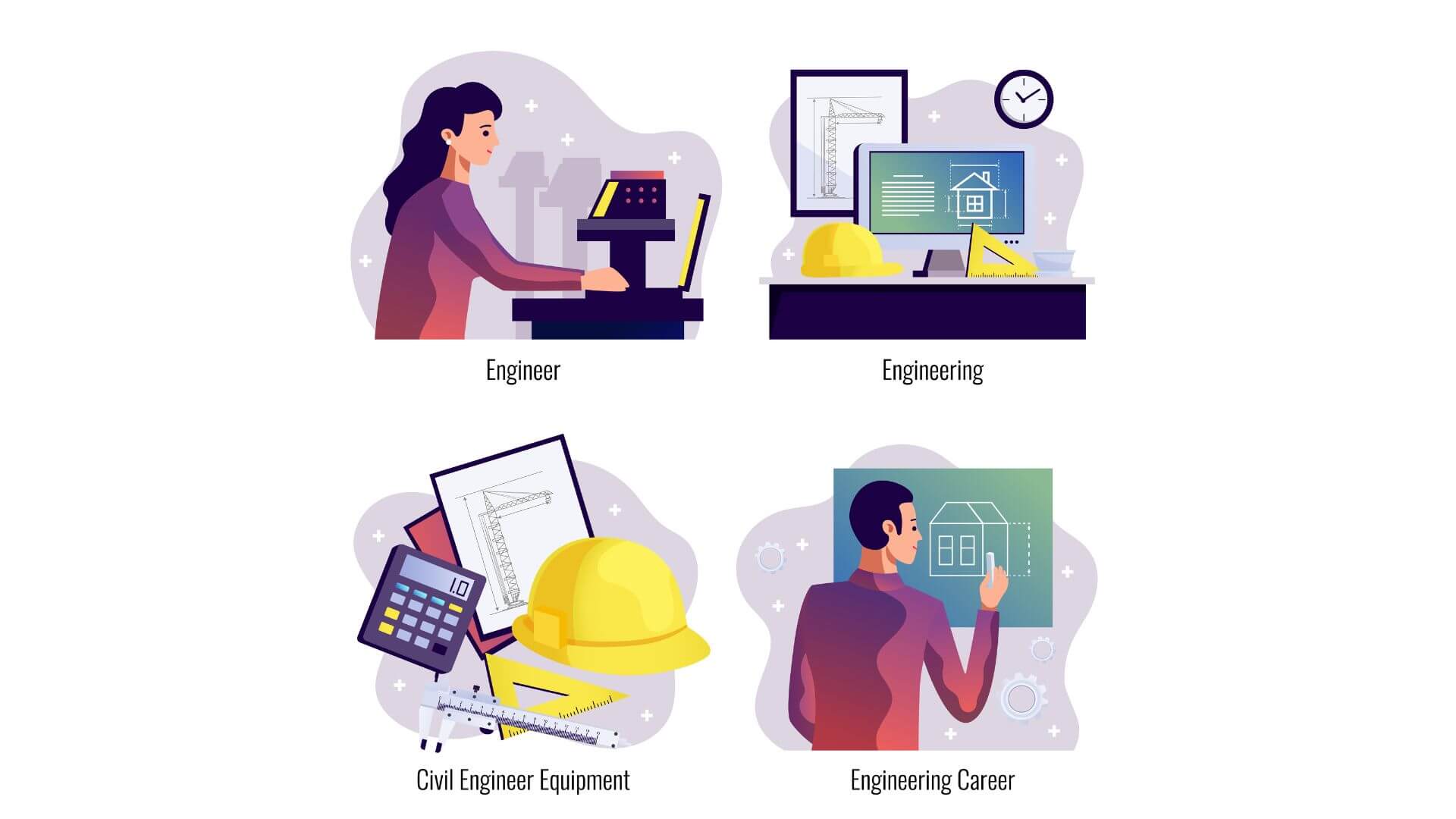As someone who wants to become an architectural engineer, exploring the construction field is like being the designer of your own exciting journey. You're tasked with creating stunning structures that testify to your creativity and expertise. To excel, you need to master the art of project management, a challenge many of you might grapple with.
Worry not, as there is a powerful solution known as engineering management courses. These courses are key to unlocking your full potential as an architectural engineer. They can help in understanding the complexities of modern construction projects.
This article will address concerns on how to seamlessly blend your architectural vision with effective project management.
Understanding Engineering Management
Engineering management bridges the gap between engineering and business. It's all about applying management principles to engineering projects and processes, ensuring they run efficiently and effectively.
This discipline is especially crucial for architectural engineers as it equips them with the skills to manage complex construction projects. Thus, many professionals opt for an engineering management master's degree online to gain in-depth knowledge and expertise. These programs offer flexibility and convenience, allowing engineers to balance work and study.
They delve into various aspects of engineering management, emphasizing the importance of strategic planning, resource allocation, and team leadership.
According to Kettering University, such online courses provide a comprehensive understanding of engineering management. It covers areas like project management, leadership, and decision-making. Such knowledge is invaluable for architectural engineers overseeing design and construction while adhering to budgets and timelines.
Gaining a strong foundation in engineering management will empower architectural engineers to tackle challenges head-on, delivering outstanding results in the dynamic construction world.
Advancing Technical Knowledge
These courses delve into the intricacies of project-specific technical challenges. They provide insights into the latest technological advancements and best practices in the construction industry. By enrolling in such courses, architectural engineers can stay updated with the ever-evolving field of engineering technology.
Engineering management education encourages architectural engineers to think critically and creatively about technical problems. It equips them with problem-solving skills that are invaluable in addressing complex issues that may arise during a project's lifecycle.
In addition, these courses often incorporate case studies and real-world examples, allowing architectural engineers to apply their technical knowledge to practical scenarios. This hands-on approach fosters a deeper understanding of engineering concepts and their real-world applications.
Leadership and Decision-Making
Leadership skills taught in these courses include effective communication, team management, and conflict resolution. Architectural engineers learn to motivate and guide their teams toward project goals, fostering collaboration and synergy among team members. It is especially valuable in architectural engineering, where a cohesive team can significantly impact project outcomes.
Therefore, according to Investopedia, finding and developing the essential traits and abilities needed to lead successfully entails developing leadership skills. To be a better leader, follow these key steps:
Seek growth: Look for chances to learn and grow, even if it's out of your comfort zone.
Think critically: Be proactive and solve problems before they become big issues. Be open to feedback.
Listen actively: Pay attention to what's said and unsaid to understand your peers better.
Motivate: Recognize achievements and support your peers, especially during tough times.
Stay disciplined: Focus on goals and make sure your peers follow through.
Keep learning: Study successful leaders and use their best practices in your leadership style.
Delegate: Trust your peers to handle tasks and deal with conflicts honestly and kindly.
Empower: Value your peer's skills and encourage new ideas.
You can become a more effective and influential leader by following these steps.
Engineering management education equips architectural engineers with decision-making frameworks and problem-solving techniques. They learn to analyze data, evaluate risks, and make informed decisions aligning with project objectives. These skills are essential when time-sensitive choices can impact project timelines and budgets.
Project Management and Efficiency
Engineering management courses are pivotal in shaping architectural engineers into effective project managers. Managing architectural projects requires a unique skill set that goes beyond technical knowledge. These courses provide a comprehensive understanding of project management principles tailored to the specific needs of the construction and architectural industries.
Architectural engineers learn how to develop project plans, allocate resources, and create realistic schedules. They gain insights into risk assessment and mitigation, ensuring potential roadblocks are proactively identified and addressed. With a strong foundation in project management, architectural engineers can optimize workflows, reduce delays, and keep projects on track, ultimately leading to improved efficiency.
Sometimes, project-based learning in engineering can face challenges as well, according to a study by MDPI. After analyzing 67 reflection reports, it found two main issues: students often have different priorities, and they can feel unsure about their project tasks.
Thus, to overcome this, it suggested that organized project management, including planning, talking, and checking progress, can help with these issues. It also emphasizes being flexible and ready to change. A supportive and inclusive teamwork environment is vital for solving problems and disagreements.
Efficiency is paramount in architectural engineering, where time and budget constraints are common challenges. Engineering management education equips professionals with tools and strategies to maximize resource utilization and minimize waste. It empowers architectural engineers to make data-driven decisions that enhance project outcomes while keeping costs in check.
Communication and Collaboration
These courses teach architectural engineers the art of clear and concise communication. They emphasize the importance of conveying technical information in a way that everyone on the project team can understand. It makes sure that everyone understands and agrees. It reduces the likelihood of misunderstandings or mistakes leading to project delays or budget overruns.
Collaboration is another key focus of engineering management education. Architectural engineers learn how to work effectively in interdisciplinary teams, leveraging the expertise of different professionals to solve complex problems. They acquire skills for fostering a positive team environment where ideas are openly shared and conflicts are resolved constructively.
Entrepreneurial Skills and Career Growth
Architectural engineers with engineering management education are better equipped to recognize new avenues within their field. They learn to identify market trends, evaluate potential business opportunities, and develop innovative solutions. These entrepreneurial skills benefit individual careers and can lead to the establishment of architectural engineering firms.
These courses encourage architectural engineers to be proactive in their career growth. They gain the confidence and knowledge needed to seek leadership roles, pursue advanced certifications, or take on larger, more challenging projects. It, in turn, can lead to higher earning potential and increased job satisfaction.
Empowering Architectural Engineers
Engineering management courses are a powerful tool for empowering architectural engineers. The job outlook of architects is anticipated to increase by 5% between 2022 and 2032. It is remarkable as it is faster than it typically is across all occupations. Also, over the next ten years, there are expected to be, on average, around 8,200 opportunities for architects, according to the BLS.
It shows the potential in the field. Passionate individuals need to understand that competition is inherent in fields like this. These courses equip engineers with essential skills to stay ahead of the curve. You can get to a position where you can expect a better future for yourself, following your passion at the same time.





